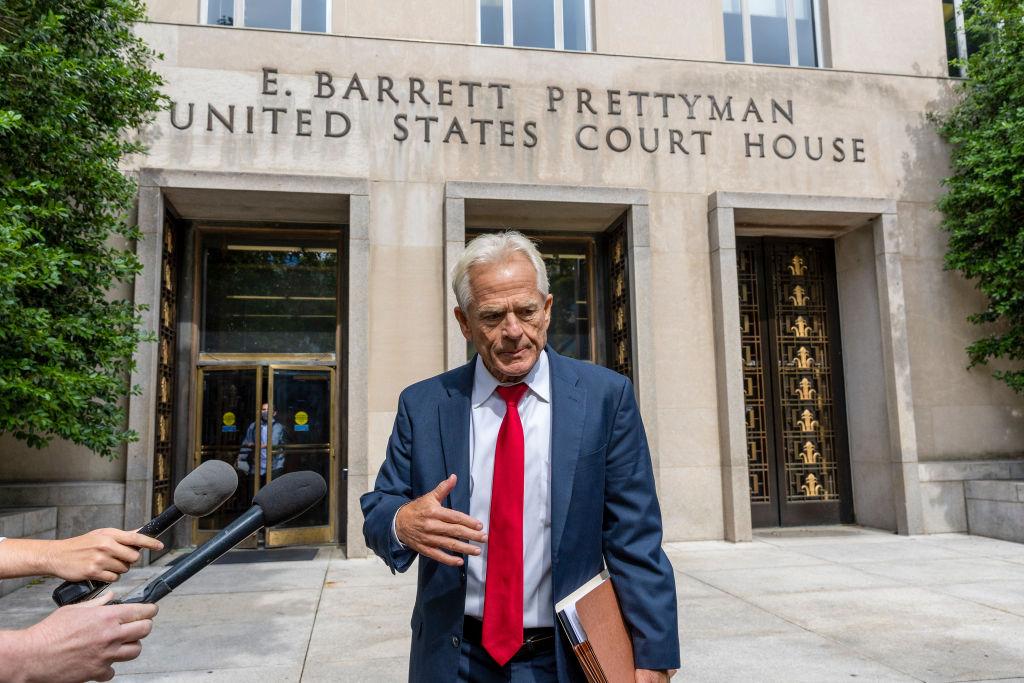The contempt of Congress trial for former Trump administration adviser, Peter Navarro, was delayed by a federal judge on Jan. 27 until the role that executive privilege could potentially play in the trial is established.
Judge Amit P. Mehta of the U.S. District Court for the District of Columbia on Friday granted attorneys for both the Department of Justice and Navarro additional time to address complicated questions regarding whether or not executive privilege applies to Navarro, extending a briefing schedule on the matter until the end of March.




